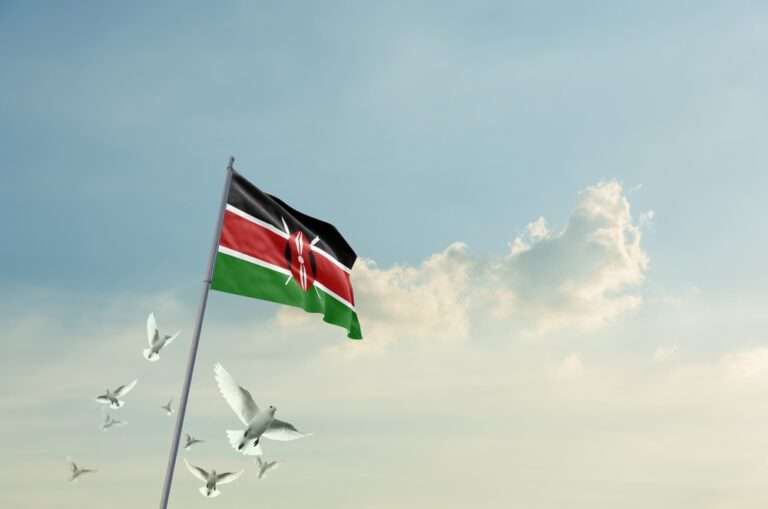
Egypt
Egypt, a nation of ageless beauties, is well-known for its rich and varied gastronomic customs in addition to its pyramids and pharaohs. Among these, traditional beverages have a particular significance that is closely entwined with the history and daily life of the nation. From the aromatic sips of Egyptian tea to the strong appeal of coffee and the refreshing local beverages, every drink conveys a tale of cultural legacy, hospitality, and friendliness.
The Love for Tea in Egypt
Unquestionably the most often drunk beverage in Egypt, tea is drunk by people from all walks of life. It is a component of daily routines, social contacts, and even economic transactions, not only a drink. Two basic kinds of Egyptian tea are “Koshary tea” and “Saiid tea.”
The lighter kind is koshary tea, which is often made with loose black tea leaves and presented liberally sugar-wise. Usually drank in Cairo and the northern areas, it is a go-to beverage for laid-back gatherings and leisure. Conversely, Saiid tea is typically drunk in Upper Egypt, is much stronger, and is highly brewed. Usually made with a protracted boiling process, this kind of tea produces a strong, bold taste that is usually sweetened to counter its intensity.
Often presented in small cups, tea is paired with a slice of lemon or fresh mint leaves, complementing the experience with cool undertones. Drinking tea in Egypt is about connection, history, and a little break from the busy life outside, not only about slaking thirst.
Egypt Visa For BRITISH CITIZENS
Egyptian Coffee: A Deeply Rooted Tradition
Egyptian coffee, sometimes called “Ahwa,” is ideal for those who yearn for a bolder and more powerful taste. Made in a little pot known as a “kanaka,” this creamy, finely ground coffee is brewed slowly over low heat, allowing it to acquire its distinctively robust and thick consistency.
Usually presented in small cups without milk, Egyptian coffee is sweetened to suit taste. While some favour “Masbout” (moderately sweet) or “Ziyada” (extremely sweet), others like “Sada” (without sugar). Sometimes, the aromatic essence of cardamom is included to give the coffee a unique, somewhat spicy taste.
Known as “Ahwas,” cafés are a pillar of Egyptian society where people socialize, engage in board games like backgammon, or observe the world change. Whether in a smaller rural town or a busy street-side café in Cairo, the Ahwa experience is a treasured component of Egyptian daily life.
More Than Just Tea and Coffee: Unique Egyptian Beverages
Egypt presents an amazing range of traditional beverages beyond tea and coffee that fit various tastes and events.
One such beverage is tart and sweet brilliant red hibiscus tea called “Karkadeh.” Hot or cold, Karkadeh is not only a delicious drink but is also said to have medical properties, especially in improving digestion and lowering blood pressure. It’s a favourite at events and get-togethers because of its arresting colour and fragrant scent.
Made from milk, sugar, and orchid root powder, “Sahlab” is another beloved Egyptian beverage—a warm, creamy treat. It is often decorated with almonds, coconut shavings, or cinnamon and thickens to a pudding-like consistency. Especially savoured in the cooler months, Sahlab is encouraging and soothing.
Another reviving classic drink is “Tamarind Juice,” sometimes known as “Tamr Hindi.” This tart, slightly sour drink is created from tamarind pulp blended with sugar and water during Ramadan and on hot summer days. Its coolness qualities and capacity to efficiently satisfy thirst are well-known.
The Role of Traditional Drinks in Egyptian Hospitality
Egyptian culture is mostly defined by hospitality; hence, giving a drink to visitors is a time-honoured habit. Whether it’s a glass of tea brought upon arrival, a strong cup of coffee shared over lengthy conversations, or a cool serving of Karkadeh during a joyful gathering, these beverages represent warmth, kindness, and social connection.
Often, guests in Egyptian houses are met with tea or coffee as a greeting. The careful preparation and presentation of these drinks mirror the ingrained conventions of respect and hospitality. Refusing a drink when offered is considered rude since it could be interpreted as discounting a virtue.
A Taste of Egypt in Every Sip
Egypt’s traditional drinks are stories handed down through generations, each with the core of the country and its people, not only beverages. These beverages provide a window into the core of Egyptian culture, whether you’re savouring a warm Sahlab in winter, a cool Karkadeh on a sweltering afternoon, or a strong cup of Ahwa in a vibrant café.
Trying these traditional drinks is a must for visitors to Egypt since it not only provides taste but also a better knowledge of Egypt’s history, hospitality, and way of life. Therefore, stop, sip, and savour the rich tastes loved for millennia the next time you are in Egypt.
The Rise of Eco-Tourism in Sri Lanka: Sustainable Travel Tips
Sri Lanka is a leading eco-tourism destination, boasting lush rainforests, immaculate beaches, and great wildlife. Sustainable travel methods are gathering steam as people become more aware of their environmental impact. Hence, Sri Lanka is a perfect location to see nature while ensuring its beauty for future generations.
In Sri Lanka, eco-tourism is centred on ethical travel that lessens environmental damage, helps nearby businesses, and advances conservation initiatives. Visitors can embrace sustainable travel in many ways, relaxing on remote beaches, touring wildlife reserves, or trekking through foggy highlands.
Exploring Nature Responsibly
Travellers can see elephants, leopards, and rare birds in their natural habitat at Sri Lanka’s stunning national parks, including Yala, Udawalawe, and Sinharaja Rainforest. Choosing ethical tour companies that follow policies that prioritize animal care and environmental protection can help guarantee a responsible wildlife experience.
Sri Lankan hiking and nature paths like Adam’s Peak and Knuckles Mountain Range allow environmentally minded visitors to appreciate breathtaking scenery fully. Selecting guided treks with local professionals improves the experience and helps rural communities’ sustainable tourism projects.
Staying at Eco-Friendly Accommodations
Growing numbers of eco-lodges, sustainable resorts, and homestays that emphasize green living abound in Sri Lanka. From solar-powered bungalows in Ella to treehouse retreats in Sigiriya, these lodging options combine trash reduction, organic farming, and rainwater collection to reflect conservation principles. Travellers who decide to stay at such locations help preserve Sri Lanka’s natural beauty while savouring a real and immersive experience.
Supporting Local Communities
Beyond environmental preservation, sustainable tourism supports local businesses and cultural appreciation. Purchasing handcrafted goods, dining at family-run restaurants, and taking part in cultural events, including traditional cookery seminars, let visitors practise responsible travel. Supporting local businesses guarantees that travel directly benefits Sri Lankan populations.
Travellers who choose wisely can savour the beauties of Sri Lanka while safeguarding its landscapes, animals, and cultural legacy. Eco-tourism is a meaningful approach to sustainably exploring the planet and positively influencing the locations we visit, not only a trend.
More articles: How a New Roof Can Boost Your Home’s Value






